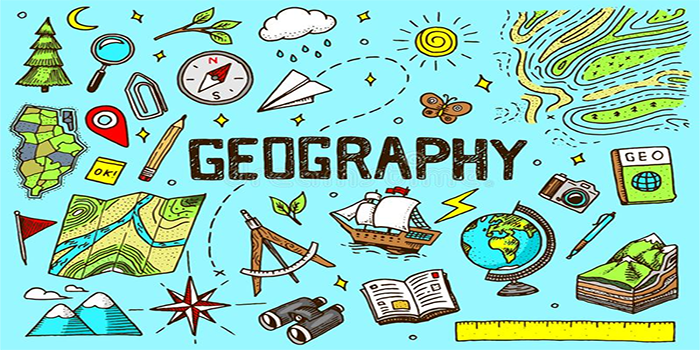
Geography is the study of the Earth and its features, including the physical characteristics of the land, water, and climate, as well as the human–made features of cities, towns, and other settlements. It is an interdisciplinary subject that combines elements from the natural and social sciences, including biology, ecology, geography, geology, history, and sociology. Topics of study in geography include mapmaking, landform analysis, population distribution, and climate change. Geographers analyze the relationships between physical and cultural features to develop a greater understanding of the Earth and its inhabitants.
Importance of Geography Subject
Geography is an important subject to study because it helps us to understand the world around us. It helps us to make sense of the physical environment, the political landscape, and the cultural diversity that exists in different parts of the world. Geography helps us to understand the relationships between people and the environment, as well as how people interact with each other and with the environment. It also helps us to identify potential environmental and social problems, and to develop strategies to address them. Finally, geography is important because it helps to inform policy decisions that influence the lives of people around the world.
Purpose of Geography Subject
The purpose of geography is to understand the relationships between people and the environment and to develop an understanding of the connections between places and regions. Geography helps us to understand the physical and human characteristics of places and how they interact with each other and the environment. It also helps us to understand how different regions and countries are connected through trade, cultural exchange, migration, and other activities. By studying geography, we can develop an appreciation for the diversity of the world and the connections between different parts of it.
How To Find Tution and Teacher For Geography
Subject 1. Contact your local school district for recommendations. Many school districts have a list of recommended tutors and teachers for specific subjects, so ask about Geography in particular.
2. Search for tutors and teachers in your area online. Websites like Tutor.com, Wyzant, and Superprof offer listings of local tutors and teachers for a range of subjects.
3. Ask other parents and students for recommendations. Word–of–mouth is a great way to find qualified tutors and teachers.
4. Ask your Geography teacher or school counselor for recommendations. They may know of a qualified tutor or teacher in the area who specializes in Geography.
5. Contact your local college or university. Many colleges and universities have tutoring centers or offer tutoring services to students. They may also have a list of Geography tutors and teachers in the area.
Point That Cover in Geography Subject
1. Cartography: The scientific study and practice of making maps and visualizing geographic data.
2. Plate tectonics: A theory describing the large–scale motion of Earth’s lithosphere.
3. Physical geography: The study of the physical features of Earth, such as landforms, climate, and soil.
4. Climatology: The study of climate, including its causes and effects on the environment.
5. Oceanography: The study of the physical and biological aspects of the oceans and seas.
6. Biogeography: The study of the distribution of plants and animals across the surface of Earth.
7. Landscape ecology: The study of the interactions between landforms, ecosystems, and people.
8. Geographic information systems (GIS): A set of tools used to capture, store, manipulate, analyze, and visualize geographic data.
9. Remote sensing: The use of aerial or satellite imagery to gather data about Earth’s surface.
10. Cultural geography: The study of the relationships between human culture and the environment.






